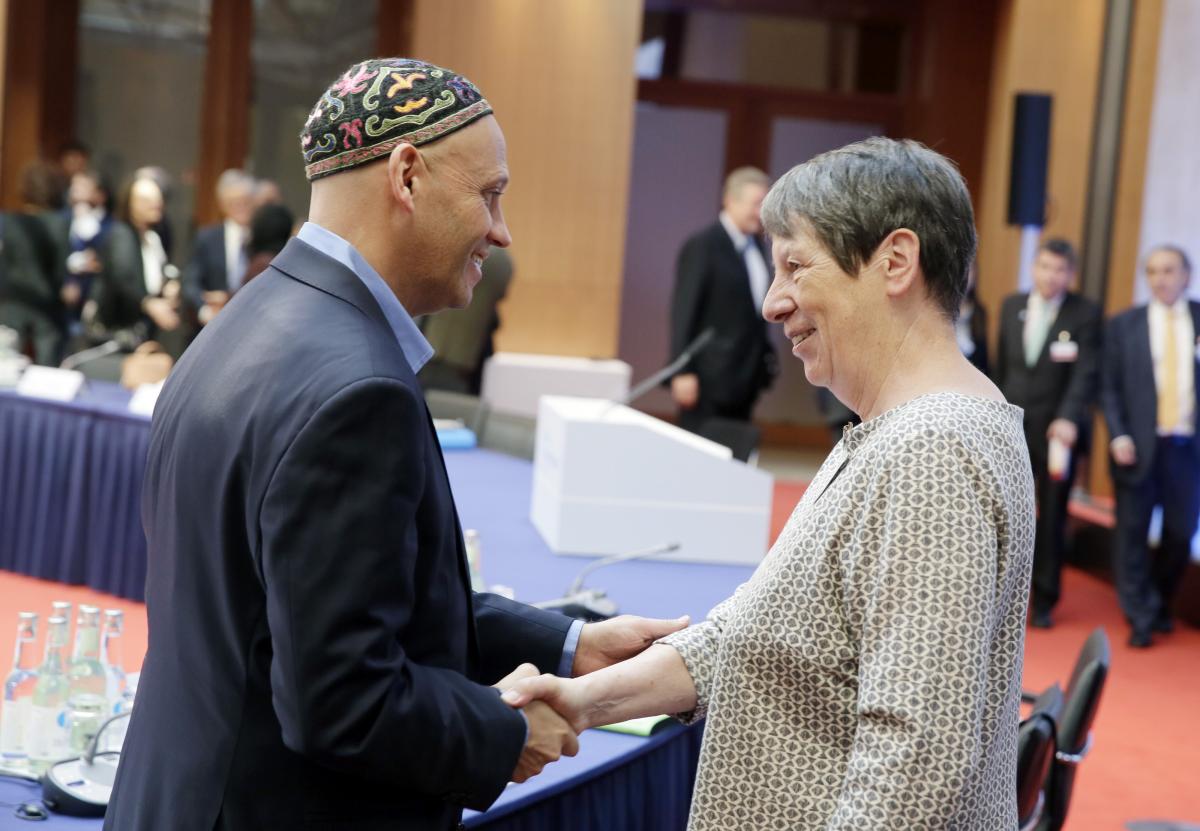Argentina to carry on Germany's G20 climate focus - env min Bergman
Clean Energy Wire: The German G20 presidency was very much focussed on climate policy, including the Paris Agreement. Can we expect the Argentinian presidency to continue this path?
Sergio Bergman: We agreed with Germany that we would continue this path. But we are also aware of the final declaration from Hamburg. We did not succeed in bringing together all 20 countries. We have a special paragraph, separating the USA on their approach to energy and climate change.
During our presidency, we will be working together to succeed in having a framework for dialogue that brings consensus among all 20 countries. That means that our topic – environment – will move from ‘merging energy and climate change’ to ‘climate sustainability’. That means we will talk more about adaptation, infrastructural resilience, education and employment. That’s because the presidency is moving from a powerful country in Europe to Argentina. We will take a rational approach: a third of our population is poor, we need to face poverty and inclusiveness. When we harm the environment, we harm human beings.
So even though we have another approach, we will keep the agreement with Germany to continue looking at resource efficiency in our work, as well as the linkage between climate change and energy productivity, new business, and new employment. We’re also talking with Japan – the following G20 presidency – to build on this transition and not to lose the effort and the success that Germany achieved in this matter.
Do you think that with your shift in focus during your presidency that it will be less of an issue dealing with the United States on climate?
No, no, we need to deal with this all the time, because we know that there are different approaches. But we are open to having a dialogue with countries that have different ideas. The common ground is what matters in the G20 – it’s not that we are the presidency and we impose our vision.
Our vision is the same vision as Germany's. We support Germany to lead. In Bonn, we heard Merkel and also Macron. It’s very important that they are taking the place left by the US. So we have Europe, France, Germany, and we also have China. It surprised the whole world that China continues with this agenda.
We came with the voice of President Macri to [the] Bonn [climate conference] to say that the Paris Agreement is alive and must be fulfilled. It’s not about opening new conversations and negotiating the terms of the Paris Agreement. For us, it is irreversible, and that’s also our voice in the G20.
At the same time, we need to bring the USA into the conversation, because when we are talking about climate sustainability, then we are talking about adaptation – while continuing mitigation. Also, we talk about how we continue in the long term the policy of carbon reduction. We need to do that. This is not easy today, but we have an agreement.
The USA says: we will weaken the Obama administration NDC [nationally determined contributions - See the CLEW factsheet on the Paris Deal] commitments, but we will continue with a policy to lower emissions. Then we say: ok, if this is your point of view, come! Why shouldn’t we be able to discuss 2050?
This is part of the path that Argentina will continue with Germany's approach. And then it’s about how we align international funds to fulfil NDCs. Here, we have to do our homework. We deliver the NDCs, we work very seriously to have numbers that are consistent. And also we brought to Bonn the sectoral problems of transportation, energy, forest. But without money, countries like Argentina can’t solve these issues.
And is that the role of the G20 then?
The G20 is very important because we talk about business and money. There, we have the presidents and heads of states of each of the G20. They must decide to put money into adaptation and mitigation. It’s not just the climate change agenda. We are talking about the SDG [Sustainable Development Goals] action, and there are 17 indicators. Climate change is only one. And it’s the symptom, it’s not the problem.
At the COP, we talk all the time about technical issues, temperatures, climate change; but these are indicators. We need to go deeper and change the way that we are doing business and using natural resources, while keeping in mind the poor.
See the CLEW dossiers on the COP23 in Bonn and the G20 in Hamburg for background.


